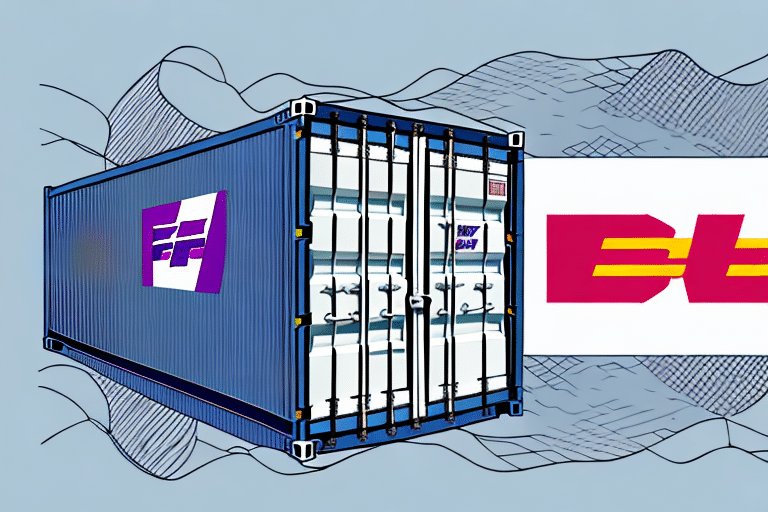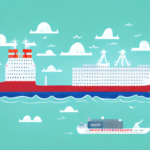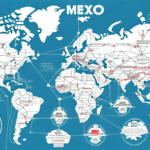Introduction to the Shipping Industry
The shipping industry plays a pivotal role in the global economy, facilitating the movement of goods and services across international borders. With the rise of e-commerce and global trade, reliable shipping services have become more essential than ever. Companies require efficient logistics solutions to meet tight deadlines, manage inventory, and satisfy customer demands.
In recent years, sustainability has emerged as a critical concern within the shipping sector. As the world grapples with climate change, shipping companies are under increasing pressure to adopt eco-friendly practices. This includes investing in alternative fuels, optimizing shipping routes, and reducing packaging waste to minimize their carbon footprint.
Service Offerings of FedEx and DHL
Domestic Shipping
Both FedEx and DHL offer a variety of domestic shipping options tailored to different needs. FedEx provides services such as FedEx Ground for cost-effective delivery within 1-5 business days and FedEx Express for faster delivery times. DHL, while renowned for its international services, offers DHL Domestic Express in select regions, focusing on reliable and efficient local deliveries.
International Shipping
When it comes to international shipping, FedEx and DHL are formidable competitors. FedEx boasts a robust global network, delivering to over 220 countries and territories. DHL is often praised for its extensive international reach, also serving over 220 countries and territories, making it a top choice for cross-border logistics.
Specialized Services
FedEx and DHL cater to specific industry needs through specialized services. FedEx offers solutions like temperature-controlled shipping for perishable goods and dangerous goods shipping for hazardous materials. DHL provides tailored services for industries such as healthcare, automotive, and energy, enabling businesses to meet unique shipping requirements effectively.
Pricing and Affordability
Pricing is a crucial factor when choosing between FedEx and DHL. Both companies offer competitive rates and various pricing plans to accommodate different shipping volumes and needs.
FedEx offers flat-rate pricing options and discounts for high-volume shippers. Additionally, FedEx provides specialized pricing for services such as FedEx Economy and FedEx Priority, allowing customers to choose based on budget and speed requirements.
DHL is often regarded as more affordable for international shipments, especially for small to medium-sized packages. DHL also offers volume-based discounts and special rates for small businesses, making it an attractive option for budget-conscious shippers.
According to recent industry reports, DHL tends to be slightly more cost-effective for international shipping, while FedEx offers competitive pricing for domestic and expedited shipping needs. However, the best choice depends on the specific shipping requirements and volume.
Delivery Times and Reliability
Delivery speed and reliability are paramount in the shipping industry. FedEx is renowned for its fast delivery times, with FedEx SameDay providing overnight delivery options. Typically, FedEx packages arrive within 1-5 business days, depending on the service selected.
DHL also offers reliable international delivery with most packages arriving within 1-6 business days. While DHL's delivery times are comparable to FedEx's, FedEx often edges out slightly in terms of speed and reliability, particularly for domestic shipments.
Both companies maintain high reliability standards, with robust tracking systems and consistent on-time delivery performance. However, regional variations can occur, so it's advisable to consult specific service guarantees when choosing a provider.
Tracking and Customer Support
Effective tracking services are essential for monitoring shipments. Both FedEx and DHL provide comprehensive tracking solutions, allowing customers to monitor their packages in real-time.
FedEx offers features such as email notifications, mobile alerts, and an intuitive online tracking platform accessible via the FedEx Tracking page. These tools enable customers to stay informed about their shipment's status at every stage.
DHL provides a similar tracking experience through its DHL Tracking system, offering real-time updates and the option to view tracking details through the DHL mobile app.
In terms of customer support, FedEx is known for its responsive and efficient service, offering 24/7 support through phone, email, and live chat. DHL also provides robust customer support but may experience longer wait times, especially during peak shipping seasons.
Sustainability and Corporate Social Responsibility
Sustainability is increasingly influencing consumer choices and corporate practices in the shipping industry. Both FedEx and DHL have committed to reducing their environmental impact through various initiatives.
FedEx aims to achieve carbon-neutral operations by 2040. Their strategies include investing in electric and hybrid vehicles, optimizing flight routes to reduce fuel consumption, and implementing sustainable packaging solutions. According to FedEx's 2023 sustainability report, they have already reduced their greenhouse gas emissions by 20% over the past decade.
DHL has set a goal to become carbon neutral by 2050. DHL's Green Logistics initiatives include the use of electric vehicles in their delivery fleets, the expansion of carbon-neutral shipping services, and the implementation of energy-efficient practices in their warehouses. DHL reported a 15% reduction in carbon emissions in 2023, aligning with their long-term sustainability goals.
Consumers who prioritize environmental responsibility may consider these sustainability efforts when choosing a shipping provider. Both companies are investing significantly in green technologies and practices to mitigate their environmental footprint.
Shipping Solutions for Small Businesses
Small businesses have unique shipping needs, requiring cost-effective and reliable solutions. FedEx and DHL offer specialized services tailored to the demands of small enterprises.
FedEx provides small businesses with discounted shipping rates, easy online shipping tools, and flexible delivery options. Additionally, FedEx offers business-oriented services such as FedEx Ship Manager, which streamlines the shipping process and integrates with e-commerce platforms.
DHL supports small businesses through competitive pricing plans, dedicated support teams, and scalable shipping solutions. DHL's DHL eCommerce service is designed to meet the needs of online retailers, providing seamless integration with major e-commerce platforms and offering affordable cross-border shipping options.
According to a 2023 small business logistics survey, DHL is often preferred for its international shipping capabilities, while FedEx is favored for domestic shipping within the United States. The optimal choice depends on the specific shipping volume and market focus of the business.
Alternatives in the Shipping Industry
While FedEx and DHL are leading players in the shipping industry, several alternatives may better suit certain shipping needs:
- UPS: Known for its extensive global network and reliable services, UPS offers a broad range of shipping options similar to FedEx and DHL.
- USPS: The United States Postal Service is a cost-effective option for domestic shipping, especially for smaller packages.
- Amazon Logistics: For businesses selling on Amazon, Amazon Logistics provides integrated shipping solutions tailored to e-commerce needs.
When selecting a shipping provider, it's important to evaluate all available options to determine which service aligns best with your specific requirements, budget, and geographic focus.
Tips for Optimizing Your Shipping Experience
- Choose the Right Shipping Option: Evaluate the different services offered by FedEx and DHL to select the one that best meets your delivery speed and budget needs.
- Proper Packaging: Ensure that your packages are securely and appropriately packaged to prevent damage during transit.
- Utilize Tracking Services: Take advantage of the tracking tools provided by both companies to monitor your shipments and provide accurate delivery updates to recipients.
- Take Advantage of Discounts: Explore available discounts and loyalty programs to reduce shipping costs, especially if you ship frequently.
- Leverage Customer Support: Don't hesitate to reach out to customer service for assistance with any shipping challenges or inquiries.
Shipping Insurance Comparison: Which One is More Comprehensive?
Both FedEx and DHL offer shipping insurance options to safeguard your packages during transit. Adequate insurance coverage is vital for valuable or fragile items.
FedEx provides up to $100 of coverage per package at no additional cost, with the option to purchase additional coverage for high-value items. This makes it suitable for customers who need basic protection or comprehensive coverage depending on their needs.
DHL also offers up to $100 of coverage for standard shipments, with optional additional coverage available for more valuable items. In practice, DHL's insurance options are comparable to FedEx's, with slight variations in terms and coverage limits based on the shipment's origin and destination.
Choosing the right insurance option depends on the value of the goods being shipped and the specific policies of each company. It's advisable to review each provider's insurance terms to ensure adequate protection for your shipments.
How to Avoid Common Mistakes When Using FedEx or DHL
- Provide Accurate Delivery Information: Ensure that all recipient details, including name, address, and contact number, are correct to prevent delivery delays or misrouting.
- Proper Packaging: Use appropriate packaging materials and methods to secure your items and minimize the risk of damage during transit.
- Choose the Right Shipping Option: Select a shipping service that aligns with your delivery speed, budget, and security requirements to optimize efficiency and cost-effectiveness.
- Utilize Tracking Services: Monitor your shipment's progress through the provided tracking tools to stay informed and address any potential issues promptly.
- Understand Insurance Coverage: Familiarize yourself with the insurance options and coverage limits to ensure your packages are adequately protected.
Avoiding these common mistakes can enhance your shipping experience, ensuring that your packages are delivered safely and on time.
Pros and Cons of Choosing FedEx or DHL
Pros of Choosing FedEx:
- Fast delivery times
- Reliable service
- Extensive global reach
- Comprehensive tracking services
Cons of Choosing FedEx:
- Can be more expensive than some other shipping services
Pros of Choosing DHL:
- Competitive pricing, especially for international shipments
- Large global network with extensive international reach
- Specialized shipping solutions for various industries and small businesses
Cons of Choosing DHL:
- Slightly slower delivery times compared to FedEx on certain routes
- Potentially longer customer support wait times
Conclusion: Choosing the Right Shipping Service
Deciding between FedEx and DHL ultimately depends on your specific shipping needs and priorities. If rapid domestic shipping and a reliable service network are your primary concerns, FedEx may be the ideal choice. On the other hand, if international shipping capabilities and competitive pricing are more critical, DHL could better serve your requirements.
Consider factors such as pricing, delivery times, tracking capabilities, customer support, and sustainability initiatives when making your decision. Additionally, evaluating alternative shipping providers can ensure that you select the most suitable and cost-effective solution for your business or personal shipping needs.






















